
Abstract Shona sculpture – Van Dusen Gardens, Vancouver photo Lorna flickr
The emergence of Shona sculpture:
Shona sculpture has been accepted as one of the most important art movements to emerge from Africa in the twentieth century, successfully combining traditional artistic beliefs with contemporary styles. The nascent “Shona sculpture movement”, which began in the fifties, has grown to be regarded as an art renaissance, as it had evolved, without hardly any sculptural heritage, into an art genre displaying vigor, spontaneity and originality in an area of Africa previously dismissed as artistically barren in the visual arts.
The Shona comprise over three quarters of the population of Zimbabwe, and smaller groups live in South Africa, Botswana, Zambia, and Mozambique while Shona is the official language of Zimbabwe.
Shona sculpture essentially began in 1957 in the former Rhodesia when Frank McEwen, who had been appointed as the first curator of the new National Gallery in Harare, encouraged local artists to take up sculpting, by providing studio space, tools and materials. He had previously been curator at the Rodin Museum in Paris and had links with various artists of the time, including Picasso and Matisse, who ironically had both been influenced by African art. Frank McEwan recognized that the Shona peoples had a natural affinity with stone and an innate creativity, hence his desire to establish art workshops.

Shona sculpture – Chapungu Sculpture Park, Harare
The Shona artist ‘works’ together with his stone and believes that ‘nothing which exists naturally is inanimate’- it has a spirit and life of its own. They didn’t receive any technical training and had very little knowledge of art from the outside world, so as McEwan described, their work revealed “the images they bore in their souls”.
Bernard Matemera, one of the early sculptors in this movement stated: “The spirits are everywhere in the air, in the rocks. A rock is like a fruit – like an orange or a banana. You don’t eat them without peeling them first. It needs to be opened to be eaten. I open the rocks. The fruit is inside.” Frank McEwen encouraged a creative atmosphere of individual ‘drawing out’ rather than didactic art school process. In response, the artist’s’ instinct was to draw on their belief system and represent the spirit world through their art. Some of the artists believe they are possessed by a ‘shave’, a wandering spirit, who confers artistic ability, or by ancestor spirits with traditional talents such as carving. McEwen encouraged the artists to look inward, to find their so-called tribal subconsciousness and express it through their art.

‘The Thinker’ – Serpentine sculpture by Boniface Mushave
Chapungu Sculpture Park, 2001
Another important development was in the 1960‘s when a sculpture community was established at Tengenenge by Tom Bloemfield on his farm in Northern Zimbabwe, near the Great Dyke, which is a rich source of good quality serpentine stone. This has now become one of the largest sculpture art communities in Zimbabwe.
In ancient Zimbabwe, between the the 11th and 15th centuries, stone was used extensively for building and for decorative purposes. Stone masons used hand hewn granite blocks to create precisely built ornate towers and enclosures without use of mortar. The Great Zimbabwe settlement, now a World Heritage Site, combined an aesthetic blend of carved natural rock formations and dry stone construction.

Female sculptor Angasa Amali – Tengenenge Art Community
Thematic influences in Shona sculpture include the natural world and man’s relationship with nature, mythology, folklore, rituals and beliefs in ancestral spirits and other traditional esoteric ideals. The spirit world is often represented by a hole (‘negative space’) in the sculpture, forming a portal into another dimension. Spirits are usually conceived of as full of swirling motion, like a gentle whirlwind. Fundamental human experiences such as grief, elation, humour, anxiety and spiritual aspects are communicated in a profoundly simple and direct manner, quite often with an abstract form, to manifest a refreshing outcome.
Zimbabwe is derived from the Shona word ‘dzimbadzamabwe’ which has the meaning ‘house of stone’ and is the only country on the African continent that has large deposits of stone suitable for sculpting.The shona sculptors are fortunate that in Zimbabwe a magnificent range of stones are available from which to choose: hard black springstone, richly coloured serpentine and soapstones, firm grey limestone and semi-precious Verdite and Lepidolite.

‘The First Born’ – Gedion Nyanhongo
Height 11.5 inches – 2005

Nicholas Mukomberanwa sculpture – ‘Wise Spirit’
mykist-gallery.co.uk

‘Woman of Wisdom’ – stone statue by Nicholas Mukomberanwa
Chapungu Sculpture from Chapungu Sculpture Park in Harare, Zimbabwe, currently on exhibition at Denver Botanic Gardens

Madora (Mupani-Worm) by Nicholas Mukomberanw
mykist-gallery.co.uk

Zimbabwe Shona figure sculpture at Naples Botanical Garden
Gray Lensman QX! – flickr

‘Animal Spirit’ —Lovemore Bonjisi

‘Love is in the Wind’ Shona stone sculpture
Chapungu Sculpture Park

‘Boy Dreaming’ by Sylvester Mubayi
Photo credit Paul Hodgkinson

Chapungu Sculpture Park at Centerra
Loveland, Colorado

Shona sculptor Colleen Madamombe
Zimbabwe

‘In Harmony With Nature’ by Simon Chidharara
Photo credit Paul Hodgkinson

Colleen Madamombe – ‘Hello’
height 55cm – 21 inches

‘Ocean Wave’ by Authur Manyengedzo
Photo credit Paul Hodgkinson

Gazelle and lion sculpture, South Africa
Derek Keats photo

Shona sculpture ‘Me And My Messenger’ — Stephen Murenza

Edmore Sango — ‘Endless Journey’
livingstoneart.be

Itayi Mupumha – ‘Ululation’

Edmore Sango -‘My Hair’— carved from springstone

Shona sculpture with matt and polished surface

‘Eyewitness’ by James Mapayi

Women carrying pot Shona sculpture ‘From the Well’ — Lameck Million

Zimbabwe serpentine stone Shona sculpture – ‘Eyewitness’ – Gift Rusere

‘Reflection’ – Ishmael Chitiyo
39cm – 15 inches height

‘Keeping the History’ — Agnes Nyanhongo

James Mbanda – ‘Split Head’

Shona female sculpture – Van Dusen Gardens, Vancouver
photo Lorna flickr

‘Watching’ – Knowledge Chanetsa

Kneeling naked woman Shona sculpture
Van Dusen Gardens, Vancouver
photo Lorna flickr

Lovemore Bonjisi — ‘Humble Man’
Carved from springstone -45 inches height

‘Lovers in Passion’ – by Rufaro Ngoma
Springstone Shona Sculpture polished with beeswax from Zimbabwe
mbare.com

‘Marching to a Different Tune’ – Cubist sculpture by Zimbabwean stone artist Taylor Nkomo

Micheck Makasa – ‘Foetus’

‘The Law Givers’ – Nicholas Mukomberanwa (Zimbabwean, b. 1940),
1998-1999; Indianapolis Museum of Art

‘Reflections’ – Ishmael Chitayo

Onward Sango Cobalt – ‘Thinking’

‘Proud Virgin’ —Stephen Murenza

‘Passion’ by Sylvester Samanyanga

Mother and Child abstract Shona serpentine marble sculpture

‘Proud Woman’ – Walter Mariga

Shona artist with his serpentine stone sculpture

Family and Child – Shona sculpture

Three Women Shona Sculpture — Van Dusen Gardens, Vancouver
Lorna flickr

Twin Females bust Shona sculpture—Van Dusen Gardens, Vancouver
Lorna flickr

‘Spirit Owl’ by Nicholas Mukomberanwa

Shona sculpture—Van Dusen Gardens, Vancouver
Lorna flickr

Stephen Murenza, sculpture-2012
Zimart
Photo credit Paul Hodgkinson

Shona sculpture—Van Dusen Gardens, Vancouver
Lorna flickr

African Art Shona Sculpture – Samson Kurehwatira

‘Standing Bather’ – Shona sculpture at Naples Botanical Garden

Tafunga Bonjisi – Shona sculptor

‘Tender Love’ by Walter Mariga

‘Together We Stand’ by Authur Manyengedzo

Tonderai Marezva – ‘Abstract’ — opal stone shona sculpture

‘Whale’ sculpture by Munyaradz Jeche
Marc Pether Longman-flickr

Shona female bust sculpture at Naples Botanical Garden, Italy
Gray Lensman QX! – flickr

Shona sculpture of bird on boys head at Naples Botanical Garden
Gray Lensman QX! – flickr

Tri legged handpainted ceramic goblet from Zimbabwe
Sources quoted –
Guruve
NEXT POST — Indigenous ethnic potteries – Maghreb and Central America






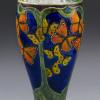

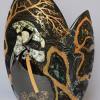
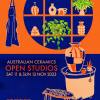
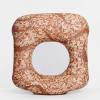
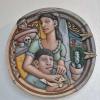
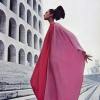
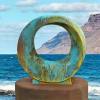
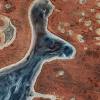
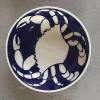
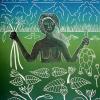
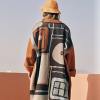
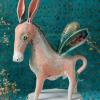
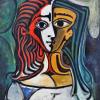
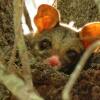
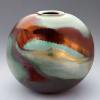
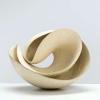
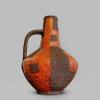
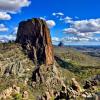
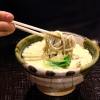
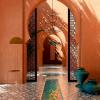
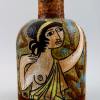
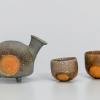
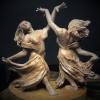
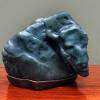
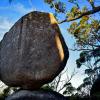
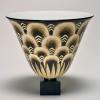
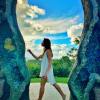
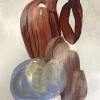
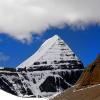
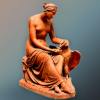
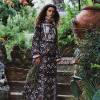
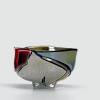
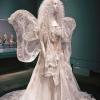
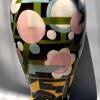
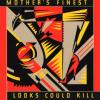
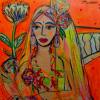
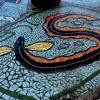
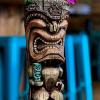
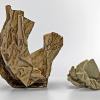
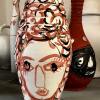
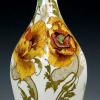
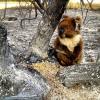
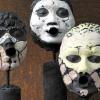
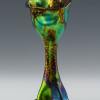
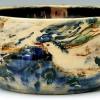
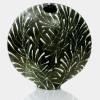
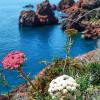
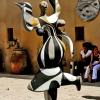
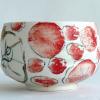
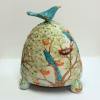
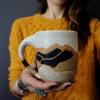
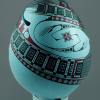
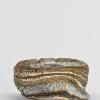
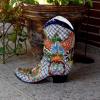
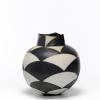
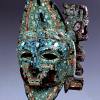
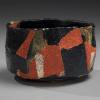
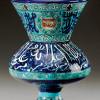
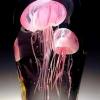
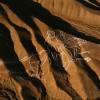
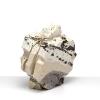
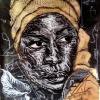
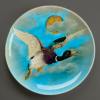
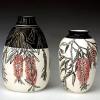
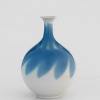
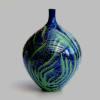
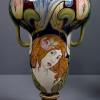
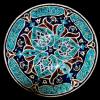
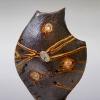
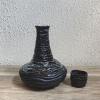
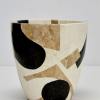
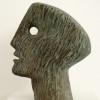
One Trackback
[…] credits: The images shown are sourced from Venice Clay Artists. If downloaded and used elsewhere please credit […]